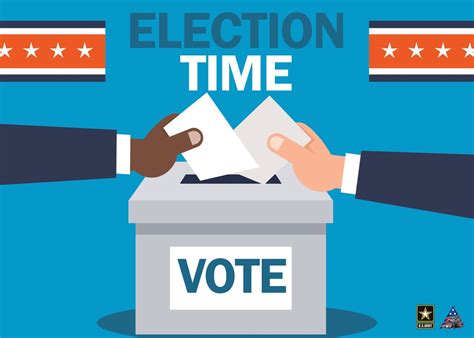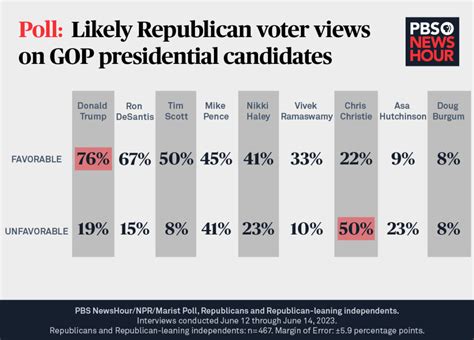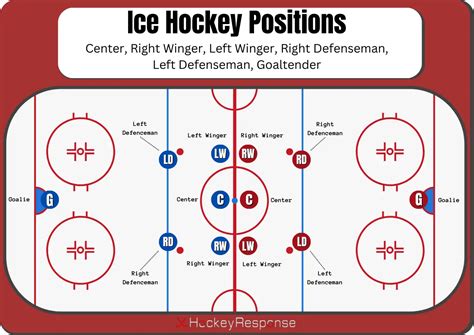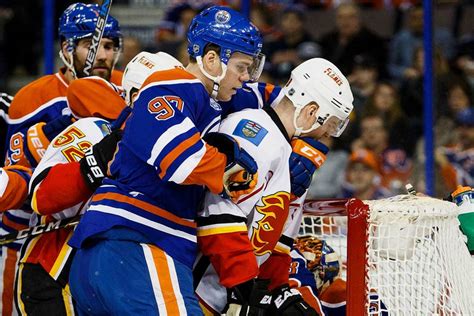Discover essential tips for organizing a successful local hockey tournament, from setting objectives to budgeting, promoting, and measuring success after the event.Are you ready to take your love for hockey to the next level? Organizing a local hockey tournament is not just a thrilling way to engage your community; it’s an opportunity to showcase incredible talent and foster teamwork. Whether you’re an experienced organizer or a first-timer, knowing how to bring your vision to life is essential for success. This guide will take you through the crucial steps, from defining your tournament objectives to setting up a budget and creating an efficient team registration process. We’ll also explore effective promotional strategies and how to measure the success of your event once the final whistle blows. Let’s get started on making your local hockey tournament an unforgettable experience for players and fans alike!
How To Define Objectives For Your Local Hockey Tournament
Defining clear objectives is crucial when organizing a successful local hockey tournament. This step will not only guide your planning but also help in measuring the success of the event after its completion. Here are some essential points to consider:
- Enrich Community Engagement: One of the primary objectives should be to foster community spirit through sports. Aim to bring together players, families, and local fans to create a vibrant atmosphere.
- Encourage Healthy Competition: Outline your goals regarding the level of competition you want to foster. Whether it’s for fun or to promote serious play, setting the right tone will help you attract the appropriate participants.
- Fundraising Initiatives: If your tournament aims to raise funds for a particular cause or organization, clearly define your financial target. This objective will help frame your marketing and sponsorship efforts.
- Skill Development: Another vital objective could be to focus on the development of participants’ skills. This can lead to organizing workshops and training sessions in addition to the tournament.
- Networking Opportunities: If your goal is to network players, coaches, and teams, then outline specific activities that facilitate meetings and connections among participants.
By establishing these objectives, you will provide your team with a focused direction and make it easier to convey your vision to potential sponsors, participants, and volunteers. Ensure to revisit and adjust your objectives as the planning progresses to accommodate evolving circumstances and insights.
Setting Up A Budget For Your Hockey Event
Establishing a budget is crucial for the success of your local hockey tournament. A well-planned budget ensures that you can cover all necessary expenses while also potentially generating revenue. Here’s a step-by-step guide on how to set up a budget for your hockey event:
| Expense Category | Estimated Cost | Notes |
|---|---|---|
| Venue Rental | $ | Includes ice time, locker rooms, etc. |
| Equipment Rental | $ | Goals, nets, scoreboard, etc. |
| Referee Fees | $ | Including travel and compensation. |
| Marketing | $ | Flyers, social media ads, etc. |
| Supplies | $ | First aid kits, pucks, jerseys. |
| Prizes | $ | Trophies or medals for winners. |
| Concessions | $ | Food and drink provisions. |
| Miscellaneous | $ | Any other unforeseen expenses. |
Once you have identified all potential expenses, calculate the total cost and compare it against your anticipated income. This income may come from registration fees, sponsorships, and concessions. Be sure to leave room in your budget for unexpected costs, as these often arise during events. Finally, keep track of all expenses and income during the tournament to ensure financial accountability as you consider how to improve future events.
Creating A Team Registration Process That Works
Establishing an efficient team registration process is crucial for the smooth operation of your local hockey tournament. A well-structured registration system not only streamlines participant data collection but also enhances the overall experience for teams. Here are key steps to ensure your registration process is effective:
- Choose a Registration Platform: Select a reliable online registration platform to manage submissions. Programs like Eventbrite, TeamSnap, or Google Forms can help facilitate easy registration and payment processing.
- Streamline Information Collection: Decide on the essential information you need from each team. Typically, this includes team name, player names, contact details, and payment information. Keep it concise to avoid overwhelming participants.
- Set Registration Deadlines: Clearly communicate registration deadlines well in advance. Consider implementing early bird discounts to encourage prompt sign-ups. This will not only help in planning but also create a sense of urgency for prospective teams.
- Establish Clear Instructions: Provide detailed instructions on how to register, including any necessary documents and payment methods. A step-by-step guide can alleviate confusion and promote smoother transactions.
- Offer Support: Create a support system for teams encountering difficulties during the registration process. Frequently asked questions (FAQs) and a contact email or phone number can be helpful in guiding teams through any issues.
- Confirm Registration: Once a team successfully registers, send a confirmation email. This message should include important details such as tournament dates, schedules, and any next steps. Ensuring teams feel welcomed and validated is important for overall satisfaction.
- Monitor Registrations: Regularly check your registration platform to monitor trends and troubleshoot any potential bottlenecks. Being proactive can help you manage resources effectively as the tournament date approaches.
By focusing on these elements, you can develop a team registration process that works efficiently and provides a positive start for all participants. Keeping the process straightforward and engaging will help you attract more teams and create a successful local hockey tournament.
How To Promote Your Local Hockey Tournament Effectively
Promoting your local hockey tournament effectively is essential to ensure its success. The right promotional strategies can attract players, spectators, and sponsors, creating a vibrant atmosphere around your event. Here are several methods to consider:
- Utilize Social Media: Create event pages on platforms like Facebook, Instagram, and Twitter. Regularly post updates, share exciting content, and encourage participants to engage. Use relevant hashtags to reach a broader audience.
- Leverage Local Media: Reach out to local newspapers, radio stations, and community newsletters to advertise your event. A good story about the tournament can capture their interest and help you gain free publicity.
- Create Eye-Catching Flyers: Design visually appealing flyers that detail the tournament’s date, location, and registration information. Distribute these in local schools, sports stores, and community centers.
- Engage with Local Hockey Clubs: Partner with local hockey associations and clubs to spread the word. They can help by promoting the tournament to their members and networks.
- Incentivize Early Registrations: Offer discounts or special incentives for early sign-ups. This can motivate teams to commit sooner and also generate buzz around the event.
- Host Pre-Tournament Events: Organize smaller events leading up to the tournament. This could be practice sessions, clinics, or meet-and-greet events, which can generate interest and excitement.
Implementing a diverse promotional strategy can significantly enhance your reach and encourage participation. Keep your messaging clear and focused on how the tournament benefits players and the community, ensuring that everyone involved feels connected and excited.
Measuring Success After The Hockey Tournament Ends
Once your local hockey tournament has concluded, evaluating its success is crucial for growing and improving future events. Here are some effective metrics and methods to assess the impact of your tournament:
- Attendance Numbers: Monitor the number of participants and spectators. Compare these figures to your initial goals to determine if you have met, exceeded, or fallen short of your targets.
- Financial Performance: Analyze the budget vs. actual expenses and income. This helps in understanding the financial health of the tournament and identifying areas for cost reduction or potential revenue enhancement.
- Feedback Surveys: Distribute surveys to players, coaches, and spectators to gather qualitative data about their experiences. Focus on questions related to organization, facilities, and overall satisfaction. This feedback is vital for making informed improvements.
- Social Media Engagement: Assess the level of engagement on social media. This can be tracked through likes, shares, comments, and mentions. It offers insight into how well your marketing efforts resonated with the community.
- Media Coverage: Review any coverage in local newspapers, websites, or blogs. The extent of media coverage can reflect the tournament’s visibility and reputation.
Utilizing a structured approach to measure success will provide critical insights and help in planning future tournaments. The key is to address each point thoroughly and be open to adjusting your strategies based on the outcomes.
| Metric | Goal | Outcome | Actionable Insight |
|---|---|---|---|
| Attendance | 500 players | 600 players | Consider expanding promotional efforts, as interest is high. |
| Financial Performance | $10,000 profit | $8,000 profit | Revise sponsorship strategies to increase revenue. |
| Survey Satisfaction | 85% positive feedback | 75% positive feedback | Focus on improving venue facilities and organization. |
By effectively measuring these elements, you can strategically plan for future tournaments and ensure they continue to grow in both participation and success!
Frequently Asked Questions
What are the first steps to organizing a local hockey tournament?
Start by defining the tournament’s purpose, setting a budget, and determining the format of the competition.
How can I effectively promote the hockey tournament?
Utilize social media, local community boards, schools, and hockey clubs to spread the word and attract participants and spectators.
What factors should be considered when selecting a venue for the tournament?
Consider the size and quality of the ice rink, accessibility for teams and fans, and the availability of necessary facilities like parking and restrooms.
How can I ensure the tournament runs smoothly on the day of the event?
Create a detailed schedule, assign roles to volunteers, and establish clear communication channels among staff, officials, and teams.
What are some effective ways to recruit volunteers for the tournament?
Reach out to local hockey clubs, schools, and community organizations, and consider offering volunteer incentives, like meals or tournament merchandise.
How can I handle disputes or issues that arise during the tournament?
Establish a clear set of rules and guidelines beforehand, and appoint a dedicated conflict resolution team to address any issues fairly and promptly.
What are some tips for securing sponsors for the tournament?
Create a sponsorship proposal highlighting the benefits for businesses, such as logo placement and exposure to the community, and reach out to local companies that align with the sports culture.









